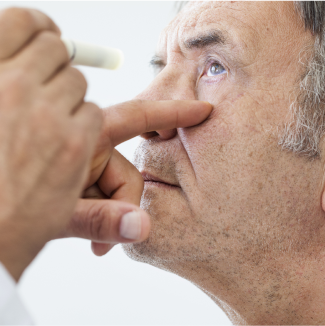Treatment
AAV Gene Therapy
Gene therapy for ophthalmic disorders
There are currently no effective treatments available for XLRP, but we have developed a new technique of gene therapy which we believe may help to slow or even stop the degeneration.
Beacon Therapeutics is currently developing laru-zova (laru-zova (AGTC-501)) for treatment of XLRP caused by mutations in the retinitis pigmentosa GTPase regulator (RPGR) gene. laru-zova (laru-zova (AGTC-501)) is an AAV vector-based gene therapy delivered subretinally, designed to provide full-length functioning RPGR protein to target the genetic root cause of XLRP.
As part of developing laru-zova (laru-zova (AGTC-501)) for treatment of XLRP, Beacon Therapeutics is sponsoring clinical trials to assess the safety and efficacy of laru-zova (laru-zova (AGTC-501)). We have completed enrollment on the Phase 1/2 trial and are currently preparing to initiate the Phase 2/3 clinical trial.
Clinical trials are a crucial part of drug development. Clinical trials look at new ways to treat disease to determine if the treatment is safe and effective. The safety of our clinical trial participants is a top priority to all of us at Beacon Therapeutics.




